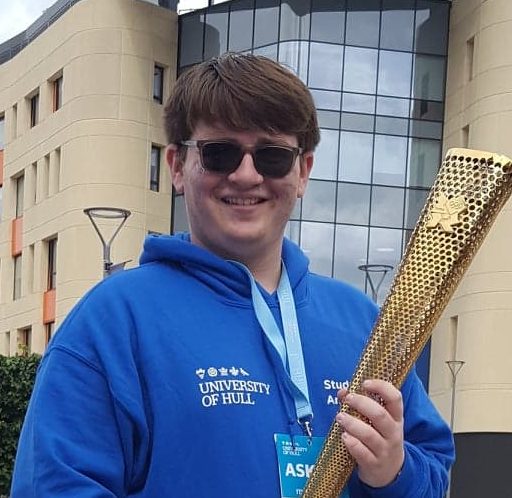



Daniel Whitt
Background: I have studied in Hull since 2016, doing an integrated MPhys Physics degree with the University of Hull. During my degree I did work on nanoconfined liquids as part of my final year project. This involved determining how the permittivity of water is affected when a cavity is reduced, and a changing alternating frequency is applied across it to see how the structure is changing. This could be used into capacitor-based nano biosensors. After graduating with a First I wanted to increase my knowledge and see how far I can go.
Research Interests: I am keen on researching into renewable energy, as well as working with nanoelectronics and medical physics. I also wrote my first paper during my undergraduate degree which was in Coronae Iridescence. This got me into researching education and environmental phenomena.
Why you applied for the Aura CDT: I applied to Aura because I wanted to do research into an area which could benefit a large percentage of the population. With the world needing to find more efficient systems and making us carbon neutral, this seemed an area which my skills could be used to benefit and push us into an eco-friendlier planet.
The world is in a climate disaster and we need to find a way to make wind energy production with as little wasted electricity as possible. Therefore, finding a green way to store this excess energy for times when production exceeds demand. Electrolysis is the process of producing green hydrogen to then be stored in tanks or caverns. The current electrolysis process is either inefficient or has issues with the electrodes. However, use of nano technology could potentially help with increasing the efficiency by removing the Electric Double Layer as well as utilising some unusual properties that occurs to water’s molecular behaviour when confined within nanocavities. Therefore, looking into these properties and developing from them we could increase the rate green hydrogen to store the wind energy.
Contact: D.P.Whitt-2016@hull.ac.uk

For an informal discussion, call +44 (0) 1482 463331
or contact auracdt@hull.ac.uk